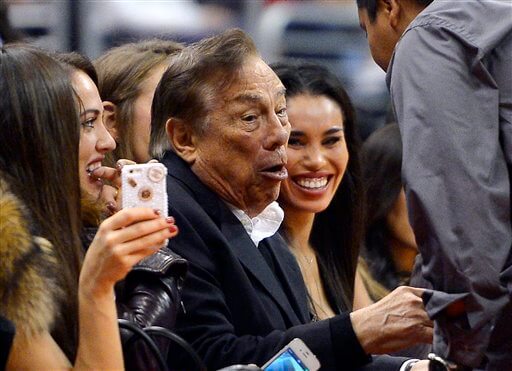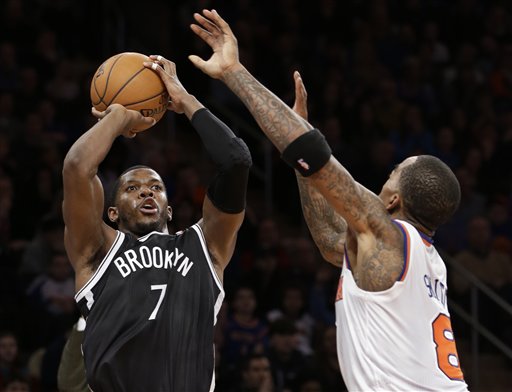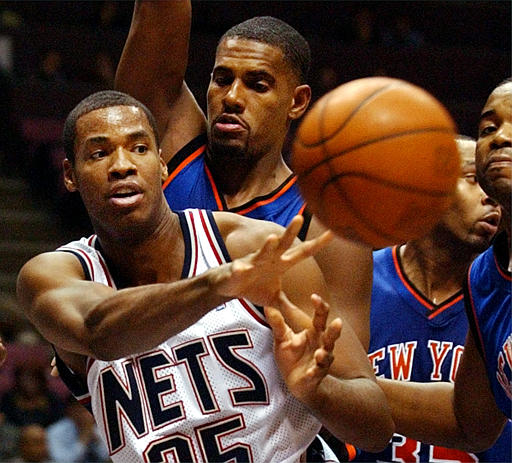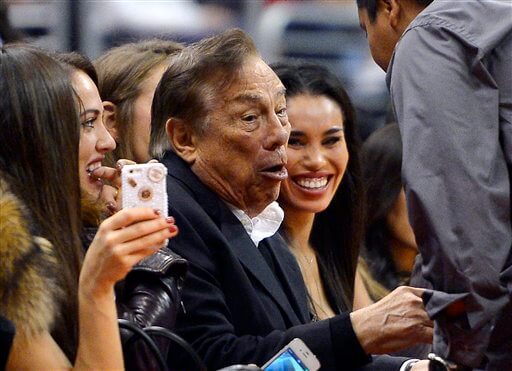
Kandynce Jones died in Los Angeles, California, in Apartment 121 at the Ardmore Apartments, a building owned by Los Angeles Clippers owner Donald Sterling. She died in an apartment that had flooded due to construction work on the building, that had a broken refrigerator, dishwasher, toilet, and shower. She died after Ardmore Apartments property owner Sterling allegedly said “just evict the bitch,” when Jones requested compensation for damages.
Kandynce Jones died in her apartment on July 21, 2003, waiting for repairs that never came. That’s all according to sworn testimony documented in this ESPN the Magazine piece on Sterling, written in 2009. Now, nearly five years after settling a housing discrimination lawsuit for $2.74 million and nearly eleven after Jones’s death, Sterling faces the court of public opinion for an offensive audio recording with his mistress that you’ve probably heard. (If you haven’t somehow, here’s parts 1 and 2.)
It’s spread like wildfire, faster than any of his past indiscretions, because of our weird fascination with voyeuristic looks at people’s lives. This is a world that now lives online, in a world both free from spontaneity and driven by appearing spontaneous. From posed pictures to status updates to hashtags, people tailor every aspect of their social lives to look exactly the way they want. Just look at the recording: the thing that set Sterling off in the first place was his mistress’s Instagram photos. In the fight, we got a crisp look at a frighteningly casual Sterling: he was just an old racist misogynist at home, in the midst of an absurd, offensive off-the-cuff fight about public appearance.
His nauseating, vile testimony was planned and recorded intentionally. But this private recording was a peek into Sterling’s deeper motives, free from public judgment or the constraints of punishment (so he thought). That’s what makes it salacious: he said something he really thought, without any legalese or public relations departments sneaking in the middle. Nothing cuts deeper than something that wasn’t supposed to cut at all.
The reaction from across the NBA has been swift and unified. League commissioner Adam Silver banned Sterling for life from all Clippers-related activities and fined him $2.5 million, the maximum punishment allowable under the NBA’s constitution. Almost every owner has commented in disgust, most just plain shocked that anyone could think this way, no less one of their own.
Cleveland Cavaliers owner Dan Gilbert called it “shocking.” Houston Rockets owner Leslie Alexander said there was “no place in the league” for an owner that makes those comments. Boston Celtics owner Wyc Grousbeck said that what he heard on the tape “goes against everything the Celtics stand for.” They treated it like they’d never seen it coming. The Nets offered an official statement, which you can read here.
But they knew. Everybody knew. Even if you didn’t know the names Kandynce Jones or Ardmore Apartments, everyone in the NBA knew that Donald Sterling was a racist slumlord. There’s a laundry list of terrible things Donald Sterling has said publicly and privately before this recording came out. Not only was it on public record (on public record!), this is someone the NBA’s worked with for 33 years.
By conveying shock, NBA owners are either obtuse or obfuscating, and you don’t get to NBA ownership by being the former. Unless you’re Donald Sterling.
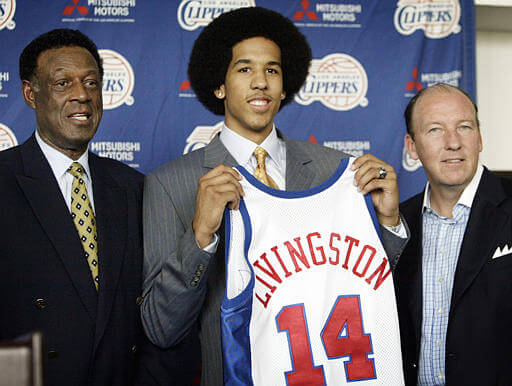
Shaun Livingston knew. Livingston was the only member on the current Nets roster who spent time on the Clippers, and told The Brooklyn Game after Sunday night’s loss that Sterling “rarely” spoke directly with him in his tenure as a Clipper. The Clippers drafted him fourth overall in 2004, and he remained a member of the team’s roster until he was released on July 10, 2008, while rehabilitating from a devastating left knee injury.
“The fact that he didn’t really speak (tells the story), you know,” Livingston told The Brooklyn Game after Sunday night’s loss, offering a shrug and a chuckle. “With his track record, we kinda knew. He spoke when he wanted to, but nothing beyond that.”
Livingston knew. The NBA knew. The 14 sponsors that have pulled ads from Clippers because of the public backlash, they knew. Don’t get me wrong: it’s good that there’s a catalyst now pushing Sterling out, no matter how weird the road was. But pretending the recording was a shock is an insult to the people who’ve felt the real impact of his discriminatory policies. It’s not just wealthy men of success like Magic Johnson or Adam Silver that have to deal with Sterling, but minority tenants living paycheck-to-paycheck with a landlord that won’t fix the plumbing.

